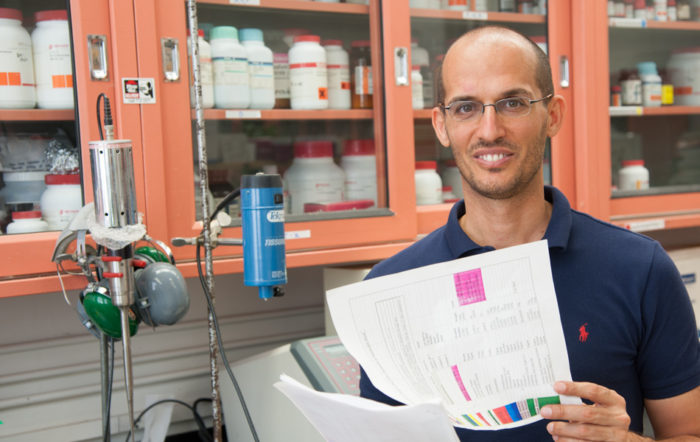Excess protein intake and prostate cancer
New research is looking at whether reducing dietary protein can help control prostate cancer in men

Nutrition researcher and aging expert, Luigi Fontana, MD, PhD.
Washington University and Alvin J. Siteman Cancer Center researchers are conducting two studies to investigate a potential link between cancer and excess dietary protein.
One study targets men with prostate cancer to see whether lowering daily protein intake slows tumor growth before surgery. The second focuses on men who have had all or part of their prostate removed surgically but still have an elevated PSA (prostate-specific antigen), a protein produced by prostate cells that is often elevated in prostate cancer.
“The typical American diet includes nearly twice the recommended daily allowance for protein,” says Luigi Fontana, MD, PhD, research professor of medicine and principal investigator for the studies. “We want to see whether cutting protein to what’s recommended may improve the health of these patients.”
Fontana says evidence suggests that a Western lifestyle puts men at risk for prostate cancer and that high levels of dietary protein may be an important factor.
“Past studies have shown that Japanese and American men typically have microscopic evidence of cancer cells in the prostate, but the American men were more likely to die of the disease,” Fontana says. “In recent years, that gap has closed. It’s possible that lifestyle and diet are a factor.”
Protein and cancer
Protein appears to be important in regulating the hormone IGF-1 (insulin-like growth factor 1), which has been linked to cancer risk. In addition, protein seems to influence other mechanisms such as inflammation and the mTOR (mammalian target of rapamycin) pathway that also appear to be related to cancer risk.
The pre-surgery study involves otherwise healthy men with prostate cancer. One month before surgery, half the men are placed on a diet that includes the recommended amount of protein.
After prostate surgery, the researchers look for differences in cancer cells in the two groups of men, as well as in the IGF-1, mTOR, inflammation and other pathways.
A second study involves post-surgical patients who continue to have elevated PSA levels. Half are asked to eat a diet with about 10 percent of total calories from protein. The others are asked to continue to eat a typical American high-protein diet. Both groups are being followed for one year.
To read more about the study and access an audio report, visit the Newsroom.







